Samsung isn't cool enough to copy Apple

Today, UK Judge Colin Birss confirms what Apple fans have claimed for years: Samsung isn't "cool enough" to copy the trendy fruit-logo company. But the result is opposite their meaning about copying badly. Birss ruled that Samsung's Galaxy Tab family of tablets do not imitate iPad, meaning violate Apple's registered design -- they're not "cool enough" and "do not have the same understated and extreme simplicity which is possessed by the Apple design".
The court gave the win to Samsung by stating that Galaxy Tab 10.1 is different enough to the iPad, being thinner and with a detailed back cover. Apple spokesman Alan Hely doesn't agree, saying: "This kind of blatant copying is wrong and, as we’ve said many times before, we need to protect Apple’s intellectual property". This is what happens when you lose and can't do it with dignity.
New Android malware threat: over 100,000 devices infected so far

Malware on Android devices is a real and growing threat, and one that is only likely to worsen. The latest Trojan to be found in the wild is a particularly nasty piece of coding named MMarketPay.A by TrustGo, the mobile security company that discovered it. Believed to have infected more than 100,000 smartphones in China, the Trojan downloads paid apps and videos from Mobile Market (M-Market), China Mobile’s official app store, without the user’s knowledge, resulting in some pretty hefty bills.
The malware is picked up by downloading infected apps from one of nine app stores (nDuoa, GFan, AppChina, LIQU, ANFONE, Soft.3g.cn, TalkPhone, 159.com and AZ4SD) and once installed on a device, it bypasses M-Market’s SMS security step, and begins placing orders and downloading content.
Someone save us from these huge Android smartphones
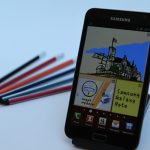
One thing that I can’t seem to get to grips with: The way manufacturers think we all have the hands of a basketball player. I’m not joking, as I’m not there yet. Look at all the new smartphones -- they are all bigger than before. It begs the question: when is enough enough?
I’m going to say it now, so I can get it over with: I don’t like big phones. I’m a guy, and I love a great display as much as the next person. But I can’t seem to love big phones. To me, a smartphone should work as a phone in the first place and as a smartphone second. I do make plenty of calls each day, and I place much value on the size of the device; it needs to fit comfortably in my pocket.
You CAN recover stolen or lost gadgets, but it ain't easy

We carry expensive gadgets on us all the time now. On a flight we listen to music on an iPhone or read on a Kindle ebook reader. We watch movies on an iPad or play Angry birds on an Android. But what do you do if you misplace that device, or worse it is stolen? What recourse do you have to get it back, if any? Who do you call, or contact for help, and what can you do to be prepared beforehand to help in getting it back yourself?
In this article I will do a quick rundown of types of devices that are most commonly lost or stolen and go over some basic rules of the road beforehand with any new gadget or device you have.
Chinese companies take a bite out of Apple
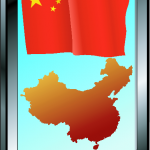
Today, China is a wonderful place for corporations around the world. The financial crisis laws don’t necessarily apply to China as they do to other places like Europe or the United States. So it comes natural for companies to invest more and more to expand into the Chinese market.
Since the end of 2011, China has surpassed the United States as the world"s largest phone market, which is great news for handset manufacturers. Smartphones also play an interesting role, as developers get interested in writing applications for the Chinese market, which would bring revenues to corporations like Apple and Google through their online stores, App Store and Google Play.
HTC can blame themselves for weak financial results

HTC is one of the most important players in the Android world, delivering some of the best smartphones on the market today. In order to improve, HTC UK chief Phil Robertson said that for 2012 they will change their strategy to release only high-quality handsets rather than focus on a high number of devices. That sounded like a great idea at the time and one that was also reinforced by the CEO, Peter Chou. But does it match HTC's recent financial results?
HTC has seen rather disappointing financial results for the second quarter of 2012, the company posting a net income, after taxes of T$7.4 billion ($247.7 million). The profits increased by 65.5 percent over the previous quarter, up from T$4.47 billion ($149 million). Revenues were up as well from the first to the second quarter, from T$67.79 billion ($2.26 billion) to T$91.0 ($3.04 billion), a 34.2 percent increase.
Google Jelly Bean smokes Apple Siri
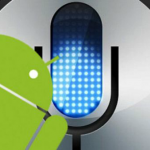
A week has passed since I started up my Google I/O-issue Galaxy Nexus and updated to Android 4.1 (aka Jelly Bean). Since then, my daughter and I faced off Google's Voice Assistant against Siri (on her iPhone 4S). The results aren't surprising. Google's depth as a search provider proves its wherewithal against Apple, which calls Siri a personal assistant. But Jelly Bean's feature, used alongside Google Now, is every bit more and every bit what a digital assistant should be. Siri sucks even more, by comparison.
I will be absolutely clear: Together, Voice Assistant and Google Now represent a watershed development, living up to what Apple promises with Siri. Google has successfully presented its depth of search in a truly meaningful manner -- one that can change how people interact with mobile devices. If execution improves over time, particularly as Google Now learns personal habits, these innovations could be as important to the search giant as the development of its algorithm.
An Amazon Smartphone could be the biggest loss leader of all

Following up on reports from the fourth quarter of 2011, Bloomberg on Friday cited anonymous sources that said Amazon is working on its own Smartphone in conjunction with noted Chinese device manufacturer Foxconn International Holdings. Additionally, the report pointed out that Amazon is also on the market to buy more wireless patents, highlighted by the fact that the company recently hired a new general manager for patent acquisitions.
Contemporaneously with the Bloomberg report, approximately a dozen new job listings at Amazon popped up today for mobile software engineers that can support "existing Amazon technologies and [build] support for next-generation technologies."
Smartphones lift Samsung profits by 79%

It seems that Samsung didn’t get the memo about the financial crisis, and they apparently seem to be unfazed by it. The South Korean company is the best-selling phone manufacturer in the world right now, according to Gartner, and today they collect the benefits for all their efforts, reporting huge profit gains, up 79 percent year over year.
Soaring Galaxy S smartphone sales have helped Samsung become the largest smartphone manufacturer in the world as well, beating Apple in the process. This was bound to have an effect over Samsung’s profits this year and the results are starting to show already in their second quarter profits.
Do you text and drive? Don't [infographic]
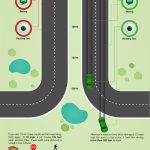
True story: While driving down Qualcomm Way into Mission Valley area of San Diego, a motorcycle cut across my lane. He moved from the right through the middle lane to the left. The guy was lucky that I saw him. I looked over while passing the motorcyclist, who was stopped in the left turn lane hunched over a cell phone. He had been texting! While driving a motorcycle! I've seen bicyclists do this, too.
The folks over at CarInsurance.org sent me an infographic with stats about texting and driving that should just chill your spine. For example: Most teens agree that texting and driving isn't good, but 30 percent do it anyway. Thirty-seven states ban the practice. Confess -- do you text and drive? I don't. But imagine if I had the day that the motorcycle crossed my lane -- both of us texting and driving and neither paying attention to the road.
PCs are still doomed and their end will come quicker than you think

A reader pointed out to me this past week that the personal computer is well over 30 years old -- a number that has real consequence if you are familiar with my work. He remembered I predicted in 1992 that PCs as we knew them would be dead by now.
I was obviously a little off in my timing. But only a little off. PCs are still doomed and their end will come quicker than you think.
Challenge Hollywood filmmakers with Samsung Galaxy S III [review]
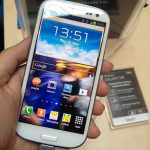
The Galaxy S III is a wonderful beast, whose 8-megapixel stills camera can also shoot video in full HD (1920x1080). So is this a triumph of technological democratisation? Is the Galaxy S III all you need to challenge the dominance of the Hollywood Studios and their ridiculous $200m budgets? After all, some movies are made on Digital SLRs these days. Read on to find out.
The answer is a definite, well, maybe. As I’ve noted in my review, the S3’s pictures are surprisingly good, and while it would be a stretch to say you could shoot "The Avengers" on a smartphone, there is a lot you can do with this tiny camera. It could certainly be a terrific little helper for blogging, web-reporting and almost anything else you might want to put on the Internet, or produce for home or office use. Obviously it has limitations, even when compared to dedicated camcorders of the same price point, so here are a few suggestions and tips for getting the best out of it.
I declare independence from Apple

Since December 1998, when on impulse I bought the original iMac from CompUSA, I've used Apple gear. No longer. Late yesterday, I replaced the last fruit-logo with another, fulfilling my pledge nearly a month ago to boycott Apple. I wanted to declare independence sooner, but with so much news to write about in June and Google I/O last week, researching and replacing the AirPort base station was too much trouble. But it's offline now -- and, along with Apple TV, going on Craigslist today.
Circumstances since choosing to boycott make me all the more adamant. Last week, US District Judge Lucy Koh issued two preliminary injunctions against Samsung devices -- Galaxy Tab 10.1 and Galaxy Nexus. Yesterday she denied Samsung's request to stay the ban pending appeal. Anticipating Nexus' similar fate, Google swiftly responded by pulling the phone from its online store and dispatching an update to existing phones. I chose to boycott being so angry by Apple's aggressive patent bullying that thwarts competition and takes away consumer choice. Today, I celebrate America's independence anniversary by gaining freedom from Apple.
Google sends wrong update to Galaxy Nexus
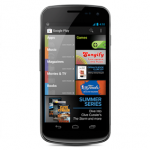
Let me see if I understand this. Google, the company that perfected web search and through it changed the lives of billions of people, must disable the local functonality from its flagship smartphone -- all because of Apple? Now do you see why about a month ago I boycotted Apple and last week called the preliminary injunction against Galaxy Nexus shameful?
Watch out. This is one Android update you don't want to accept. I asked my wife this morning: "Do you use local search on your phone?" She has Galaxy Nexus. My lovely looked up with a startled WTF looked and answered: "Yeah". Of course she uses local search on her phone. Who doesn't? You. If you own Galaxy Nexus and accept the update. It's the wrong one for Google to send out. The search giant should dispatch Android 4.1, which if, I understand correctly, changes search so that Apple's bully patent doesn't apply. C`mon, Google, you can do better.
Micron swoops in to save Elpida, becomes top-tier supplier

Micron set itself up to be the world's top tablet and mobile memory supplier after announcing its intent to purchase Elpida on Monday. Apple is one of Elpida's biggest customers, and its chips are found in devices and Macs throughout its product line.
Micron will pay Elpida creditors $2.5 billion to settle any claims, and will pay Elpida $750 million to purchase its assets. Another $1.75 billion is to be paid through 2019 in installment payments for foundry services to be provided by Elpida to Micron, which will now operate as a Micron subsidiary.
Recent Headlines
Most Commented Stories
BetaNews, your source for breaking tech news, reviews, and in-depth reporting since 1998.
© 1998-2025 BetaNews, Inc. All Rights Reserved. About Us - Privacy Policy - Cookie Policy - Sitemap.